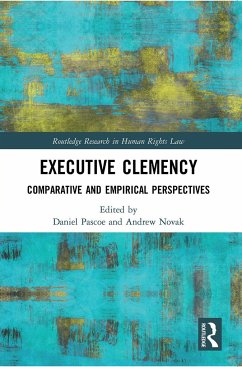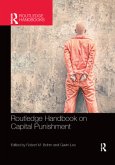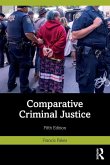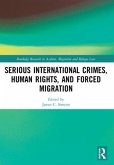Nearly every country in the world has a mechanism for executive clemency, which, though residual in most legal systems, serves as a vital due process safeguard and as an outlet for leniency in punishment. While the origins of clemency lie in the historical prerogative powers of once-absolute rulers, modern clemency laws and practices have evolved to be enormously varied. This volume brings comparative and empirical analysis to bear on executive clemency, building a sociological and political context around systematically-collected data on clemency laws, grants, and decision-making. Some jurisdictions have elaborate constitutional and legal structures for pardoning or commuting a sentence while virtually never doing so, while others have little formal process and yet grant clemency frequently. Using examples from Asia, Europe, Latin America, the Caribbean, and the USA, this comparative analysis of the law and the practice of clemency sheds light on a frequently misunderstood executive power.
This book builds on existing academic scholarship and expands the limited geographical scope of prior research, which has tended to focus on North America, the UK, and Australia. It relays the latest state of knowledge on the topic and employs case studies, doctrinal legal analysis, historical research, and statements by clemency decision-making authorities, in explaining why clemency varies so considerably across global legal and political systems. In addition, it includes contributions encompassing international law, transitional justice, and innocence and wrongful convictions, as well as on jurisdictions that are historically under-researched.
The book will be of value to practitioners, academics, and students interested in the fields of human rights, criminal law, comparative criminal justice, and international relations.
This book builds on existing academic scholarship and expands the limited geographical scope of prior research, which has tended to focus on North America, the UK, and Australia. It relays the latest state of knowledge on the topic and employs case studies, doctrinal legal analysis, historical research, and statements by clemency decision-making authorities, in explaining why clemency varies so considerably across global legal and political systems. In addition, it includes contributions encompassing international law, transitional justice, and innocence and wrongful convictions, as well as on jurisdictions that are historically under-researched.
The book will be of value to practitioners, academics, and students interested in the fields of human rights, criminal law, comparative criminal justice, and international relations.
Are pardons a thing of the past? Is mercy a prerogative of monarchs? This book answers these questions with a resounding 'no'. Edited by two leading legal scholars of clemency, this unmatched collection ranges across the world, demonstrating the breadth of discretionary practices that modify punishment. As it points the way toward the just use of executive power, this book is essential reading for scholars and activists.
Carolyn Strange, Professor of History, Australian National University.
This essential collection of writings on the use and power of clemency could not be more timely. Executive Clemency fills a long-standing gap in criminal justice research and provides us with the deepest and most extensive analysis of clemency procedures across global legal and political systems for more than 40 years. Not only does it fill a significant gap in our knowledge and understanding, it has the potential to inform and improve clemency laws and practices worldwide. It should be read and discussed by policymakers, practitioners, researchers and students concerned with the lives and deaths of prisoners.
Dr Catherine Appleton, Senior Research Fellow at the School of Law, University of Nottingham.
Carolyn Strange, Professor of History, Australian National University.
This essential collection of writings on the use and power of clemency could not be more timely. Executive Clemency fills a long-standing gap in criminal justice research and provides us with the deepest and most extensive analysis of clemency procedures across global legal and political systems for more than 40 years. Not only does it fill a significant gap in our knowledge and understanding, it has the potential to inform and improve clemency laws and practices worldwide. It should be read and discussed by policymakers, practitioners, researchers and students concerned with the lives and deaths of prisoners.
Dr Catherine Appleton, Senior Research Fellow at the School of Law, University of Nottingham.








